|

by Tyler Durden
August 10,
2018
from
ZeroHedge Website
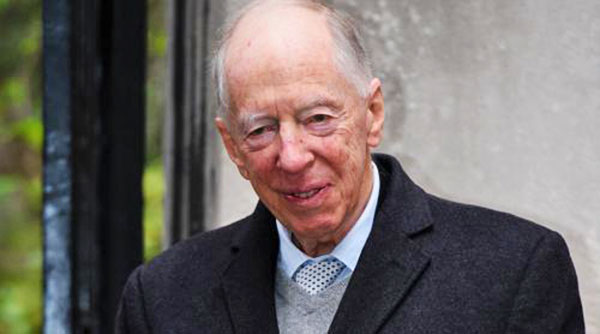
Lord Jacob Rothschild
Over the
past three years,
an unexpected
voice of caution
has emerged from
one of the
most legendary
families in finance:
Lord Jacob
Rothschild...
Readers may recall that as part of the
RIT Capital Partners 2014 annual
report commentary, the scion of
Rothschild family,
warned that,
"the geopolitical
situation is most dangerous since WWII."
One year later, Jacob
Rothschild
again warned about the outcome of,
"what is surely the
greatest experiment in monetary policy in the history of the
world".
And then again in August
2017 he
cautioned that,
"share prices have in
many cases risen to unprecedented levels at a time when economic
growth is by no means assured."
Little did he know that
they were only going to keep rising, but related to that, he also
made another warning which the market has so far blissfully ignored:
The period of
monetary accommodation may well be coming to an end.
Geopolitical problems remain widespread and are proving
increasingly difficult to resolve.
Fast forward to today
when in the
latest half-year commentary from
RIT Capital Partners, Jacob Rothschild has made his latest
warning to date, this time focusing on the global economic system
that was established after WWII, and which he believes is now in
jeopardy.
The billionaire banker pointed to the U.S.-China trade war
and the Eurozone crisis as the key problems putting economic
order at risk, and the lack of a "common approach" - a reference to
the gradual unwind of globalization in the wake of President
Trump - that has made
"co-operation today much more difficult":
"In
9/11 and in the
2008 financial crisis, the
powers of the world worked
together with a common approach. Co-operation today is proving
much more difficult.
This puts at risk the
post-war economic and security order."
It wasn't clear if he was
referring to,
-
the post-war
fiat standard that emerged once
FDR devalued the dollar
relative to gold, and then fixed a price for the yellow
metal, a tenuous link that was subsequently destroyed by
Nixon who finally
took the U.S. off the
gold standard
-
or the primacy of
the dollar which emerged as the world's reserve currency
after the end of WWII,
...but whenever one of
the people who profited handsomely from the "post war world order"
warns it may be on its last legs it may be time to worry.
With global risks growing, how is Rothschild positioned?
He writes that,
"in the circumstances
our policy is to maintain our limited exposure to quoted
equities and to enter into new commitments with great caution",
...and indeed, in the
first half, RIT had a net quoted equity exposure of only 47%,
historically low.
The reason:
the iconic banking
family is concerned that the 10-year bullish cycle and market
rally could finally be ending.
The cycle is in its tenth
positive year, the longest on record. We are now seeing some areas
of weaker growth emerge; indeed
the IMF has recently predicted some
slowdown.
While Rothschild noted that,
"many of the world's
economies have enjoyed a broad-based acceleration not seen since
the aftermath of the financial crisis of 2008, with as many as
120 countries seeing stronger growth last year".
He also cautioned that,
"we continue to
believe that this is not an appropriate time to add to risk.
Current stock market
valuations remain high by historical standards, inflated by
years of low interest rates and the policy of quantitative
easing which is now coming to an end."
One potential risk
is Europe, where debt levels have
reached "potentially destructive levels":
The problems
confronting the Eurozone are of concern - both political and
economic - given the potentially destructive levels of debt in a
number of countries.
There is also the threat
that the global trade war escalates substantially from here,
as Chinese stocks have learned the hard way:
The likelihood of
trade wars has increased tension and the impact on equities has
been marked; for example by early July the Shanghai Composite
Index had dropped some 22% from its peak in January.
Rothschild also echoed
the recent warning from the head of the Indian Central Bank,
warning that the shrinking of global dollar liquidity is hurting
emerging markets:
Problems are likely
to continue in emerging markets, compounded by rising interest
rates and
the U.S. FED's monetary policy
which has drained global dollar liquidity.
We have already seen
the impact on the Turkish and Argentinean currencies.
Finally, Rothschild
remains understandably,
"concerned about
geo-political problems including Brexit, North Korea and the
Middle East, at a time when populism is spreading
globally..."
* * *
Rothschild continued the shift away from U.S. capital markets
exposure announced two years ago, noting that his,
"exposure to absolute
return and credit assets continued to generate steady returns
and on currencies, the net asset value benefited from the
strengthened U.S. Dollar."
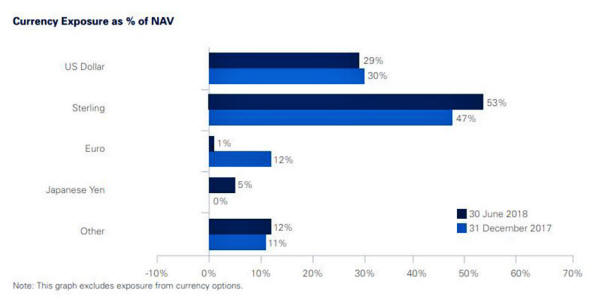
Compare the collapse in
the fund's USD exposure, which as of June 30 was only 29%, to the
62% as recently as December 31, 2016:
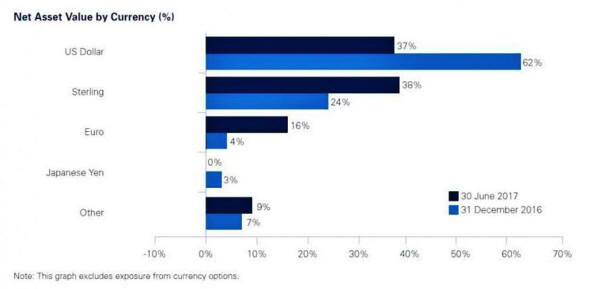
Not surprisingly, RIT's investment portfolio continues do quite
well, and has now returned over 2,400% since inception:
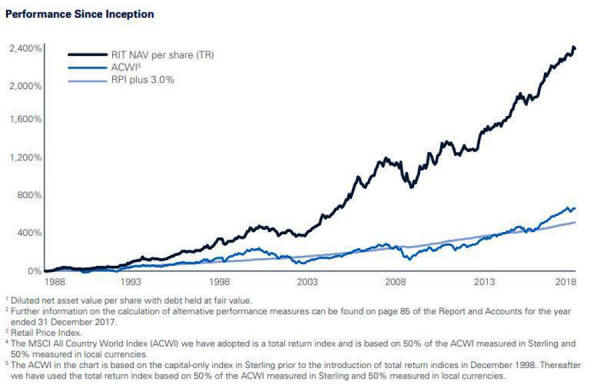
Below is a snapshot of where every hedge fund wants to end up:
the Rothschild
investment portfolio...
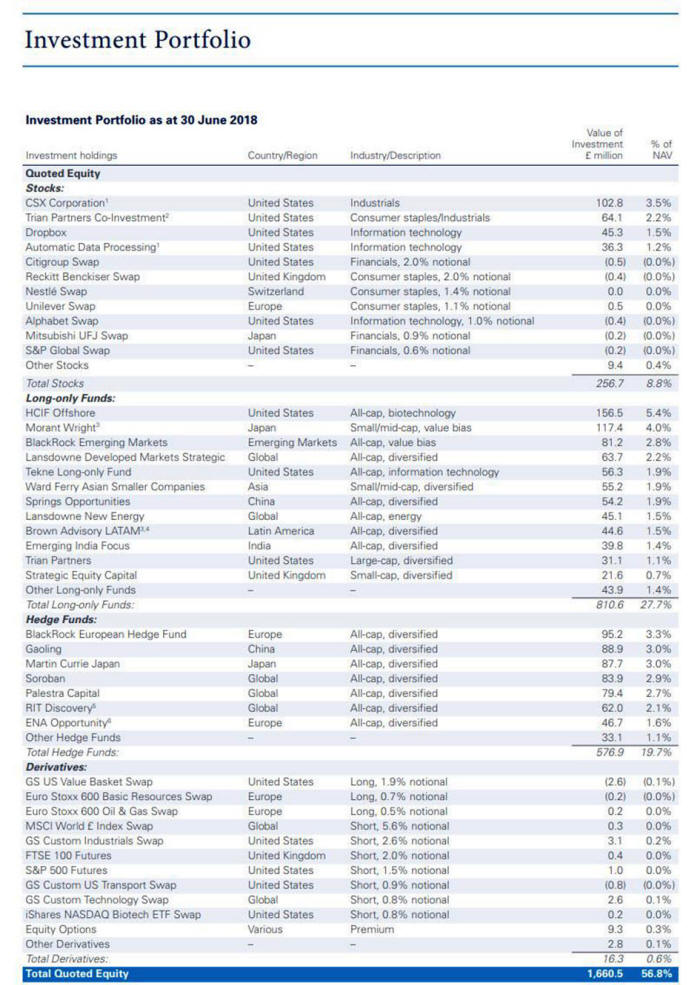
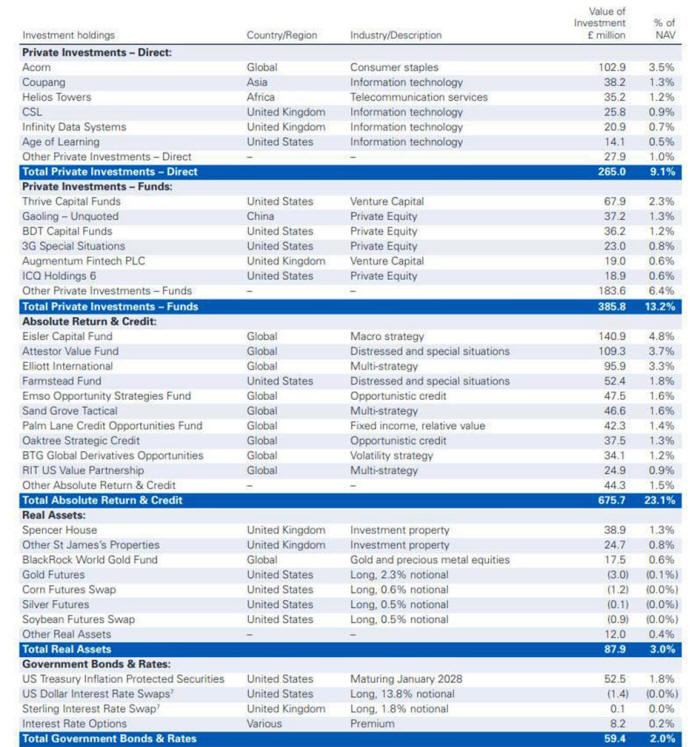
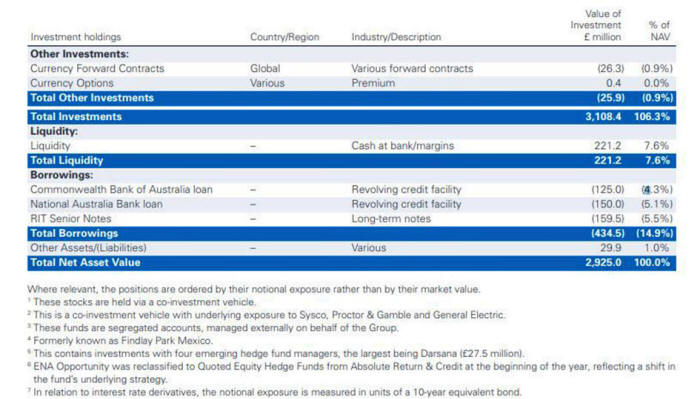
Finally, for all those wondering where the Rothschild family fortune
is hiding, here is the answer:
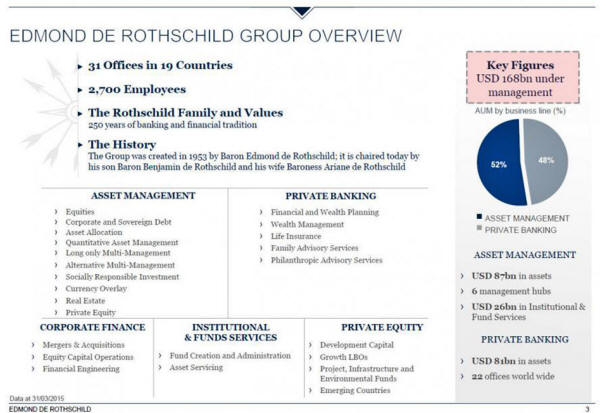
|









